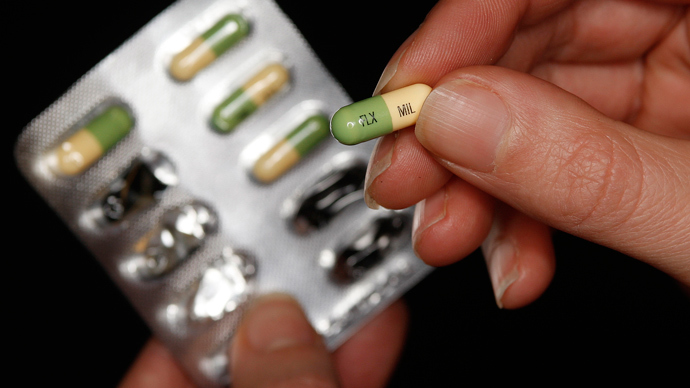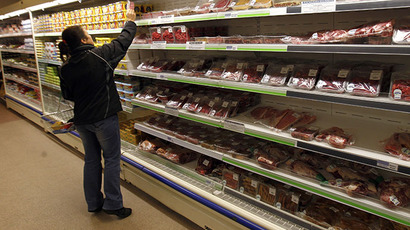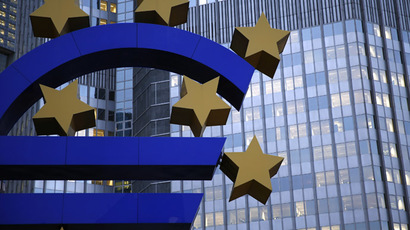Recession depression? Surge in antidepressant across EU linked to crisis

Antidepressants could become nearly as widely-used as antibiotics across the leading economies, with more than one in 10 adults in some countries receiving prescriptions for them, according to a new report.
The study by the Organization for Economic Co-operation and
Development has found that the global financial meltdown may have
been a catalyst for the latest surge in usage of antidepressants.
In Spain, which in September 2013 experienced its highest rate of
unemployment (26.6 percent, while youth unemployment climbed to
56.5 percent according to Eurostat), antidepressant prescriptions
have jumped by 23 percent over the past five years. The good
thing is that this increase was slightly lower than in the
preceding four-year period (28 percent between 2003 and 2007.
In Portugal, where youth unemployment is currently over 37
percent, antidepressant consumption went up by 20 percent between
2007 and 2011.
Paradoxically enough, the consumption of antidepressants rose
even more quickly in countries which were less affected by the
economic crisis and have experienced a more rapid economic
recovery. For instance, Germany, which has one of the lowest
unemployment rates in Europe, had a rise of 46 percent between
2007 and 2011.
The small island nation of Iceland, whose stock market after the
2008 financial crisis plunged 90 percent while unemployment rose
ninefold, had the highest prescription rate of antidepressants:
105.8 doses a day for every 1,000 inhabitants in 2011, up from
70.9 in 2000 and 14.9 in 1989, the OECD figures showed.
"Part of the explanation for the high consumption in Iceland
is that a much higher proportion of the population receives at
least one prescription for an antidepressant each year. In 2008,
almost 30 percent of women aged 65 and over had an antidepressant
prescription in Iceland, compared with less than 15 percent in
Norway," the OECD's "Health at a Glance" report revealed.
In Denmark, antidepressants prescriptions have also gone up, from
34.8 to 85.2, while rates in the UK have nearly doubled over the
past decade: 70.7 antidepressant prescriptions a day for every
1,000 people in 2011. The UK has the seventh-highest prescribing
rate for drugs such as the extremely popular Prozac. Meanwhile,
according to the latest study by the Centre for Social Justice
(CSJ), total personal debt in the UK has recently reached record
highs – 1.4 trillion pounds, which means average households
currently owe nearly as much as the country's economic output
last year. Over 130,000 people declare bankruptcy or some other
form of insolvency each year in the UK.
The consumption of antidepressants over the past decade has
increased by over 80 percent on average across EU member states,
according to the report. While some experts interpret these
findings as evidence of a growing influence of depression, the
trend also reflects greater efforts to provide treatments to
people suffering from severe depression, as well as greater
intensity of these treatments, the report suggests.
The ‘Health at a Glance’ study states that in England, for
example, the increase in antidepressant consumption has been
associated with a longer duration of drug treatment.
The director of the National Collaborating Centre for Mental
Health in the UK disagrees that the growing rate of
antidepressant prescription has much to do with better
recognition of depression in many countries.
"It's much more likely a testament to the effective marketing by
the pharmaceutical industry," Professor Tim Kendall told the
Guardian, "I also wonder if, in better-off countries, which
OECD countries are, we don't have time to be depressed and seek
chemical solutions to 'get rid of it'."
Dr. Mark van Ommeren, of the World Health Organization's
Department of Mental Health and Substance Abuse, also believes
that a lot of people who shouldn't be getting antidepressants are
getting them.
"Doctors and healthcare providers should be able to recognize
depression correctly so that those who need antidepressants get
them and those with only mild cases do not get prescribed."














